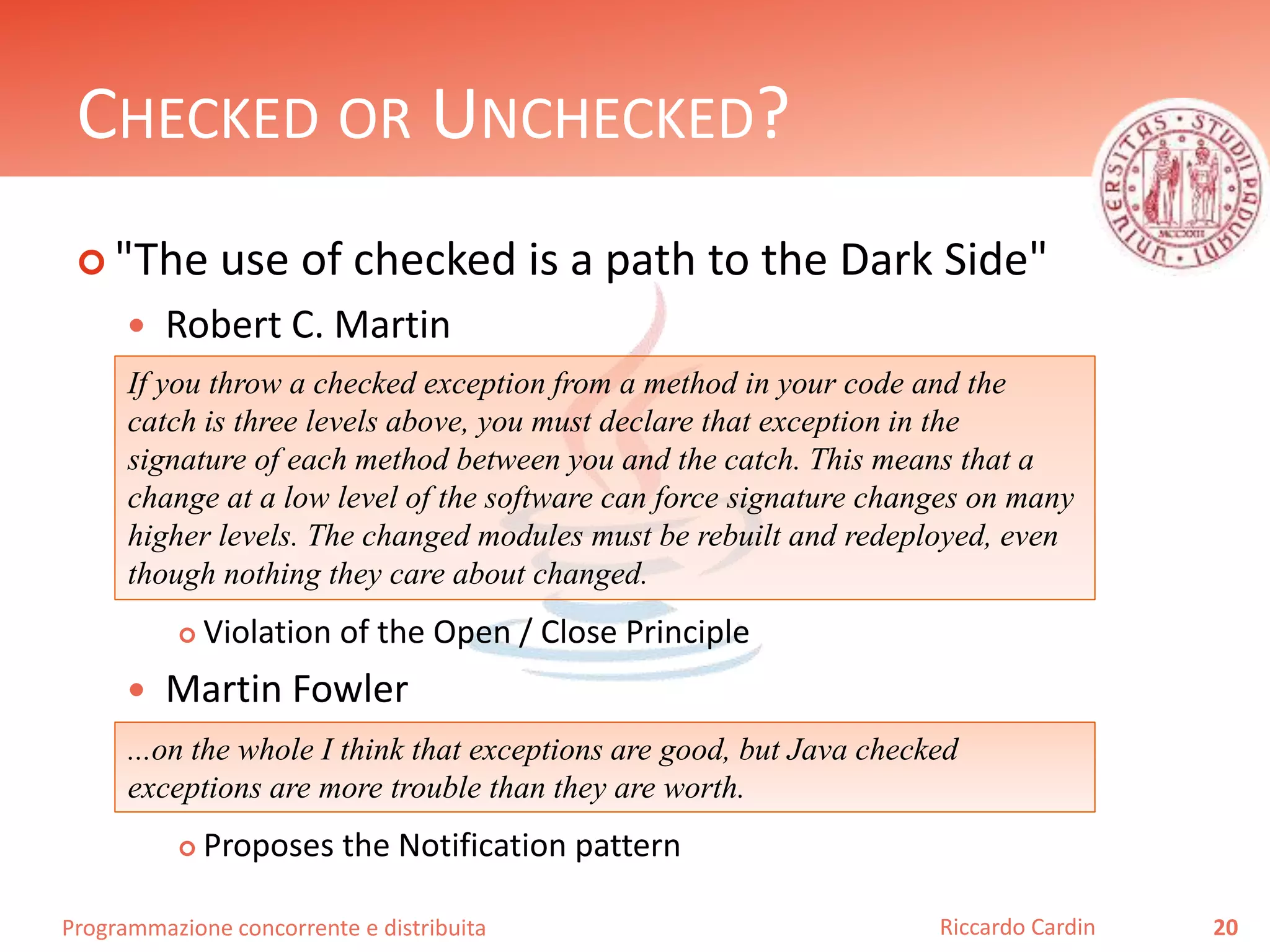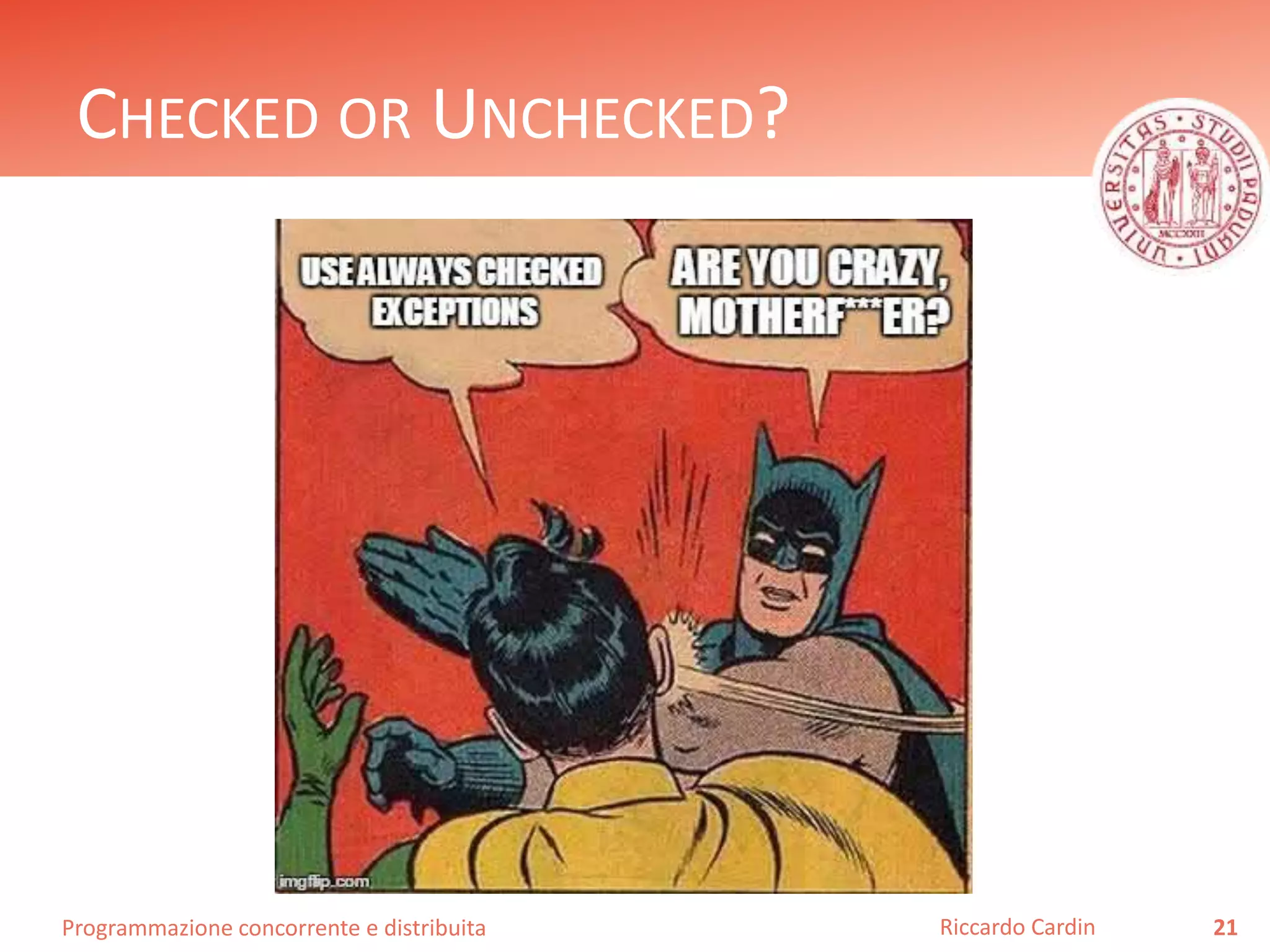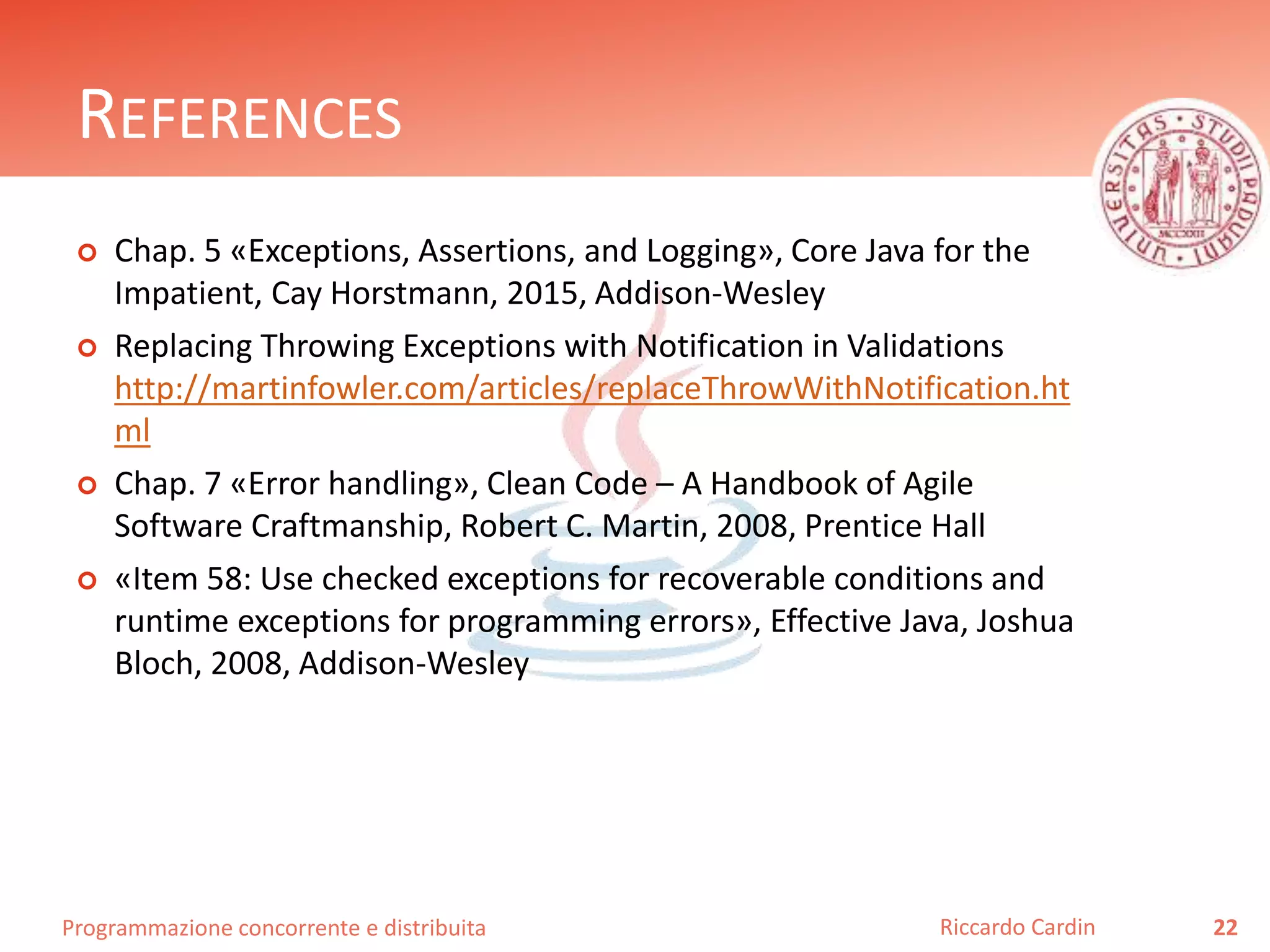The document provides an overview of exception handling, assertions, and logging in concurrent and distributed programming, focusing on their importance in managing errors effectively. Key topics include throwing and catching exceptions, the distinction between checked and unchecked exceptions, and the use of assertions for defensive programming. Logging is also discussed as a means to replace simple debugging output with a more robust logging system.

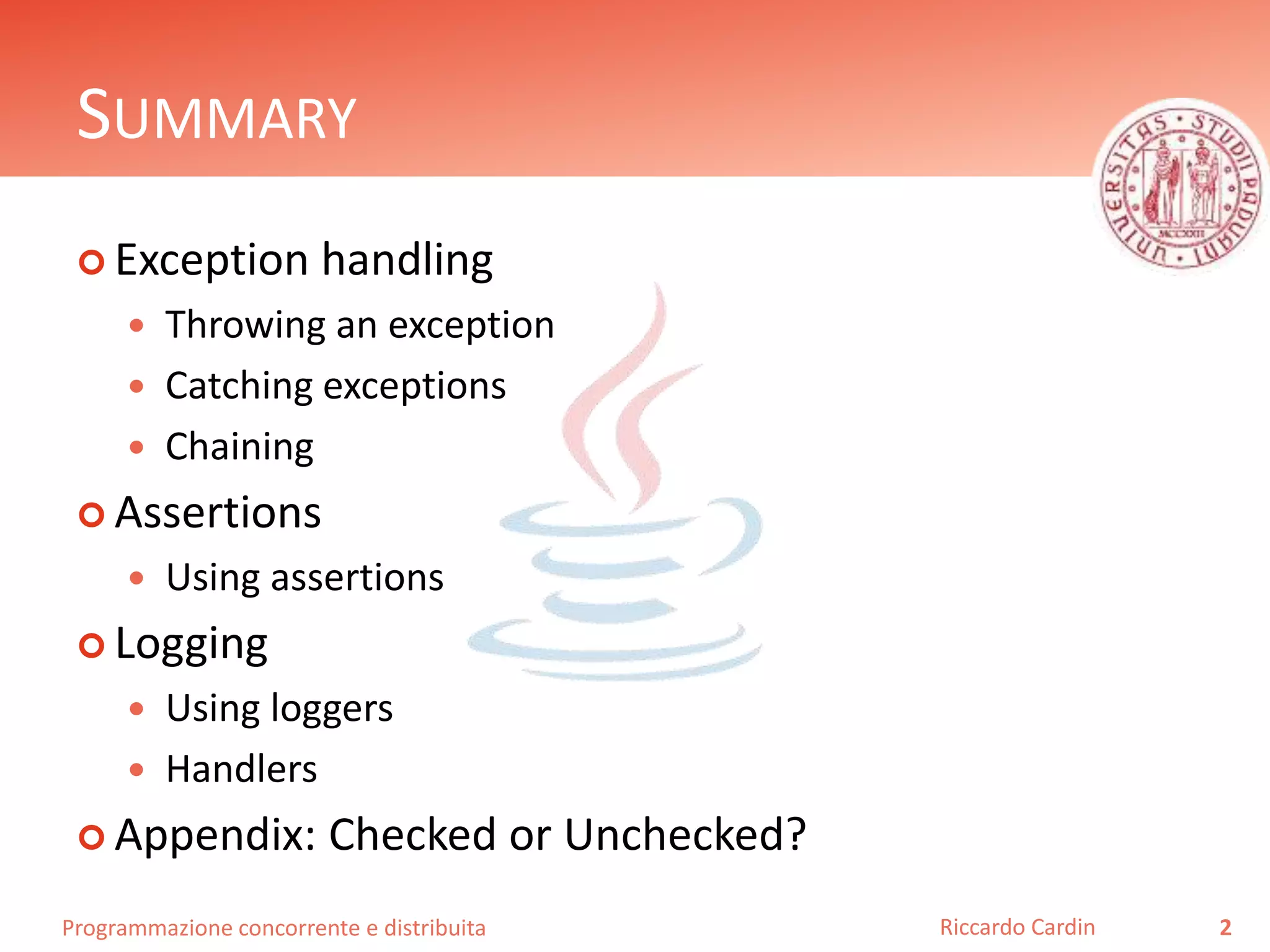
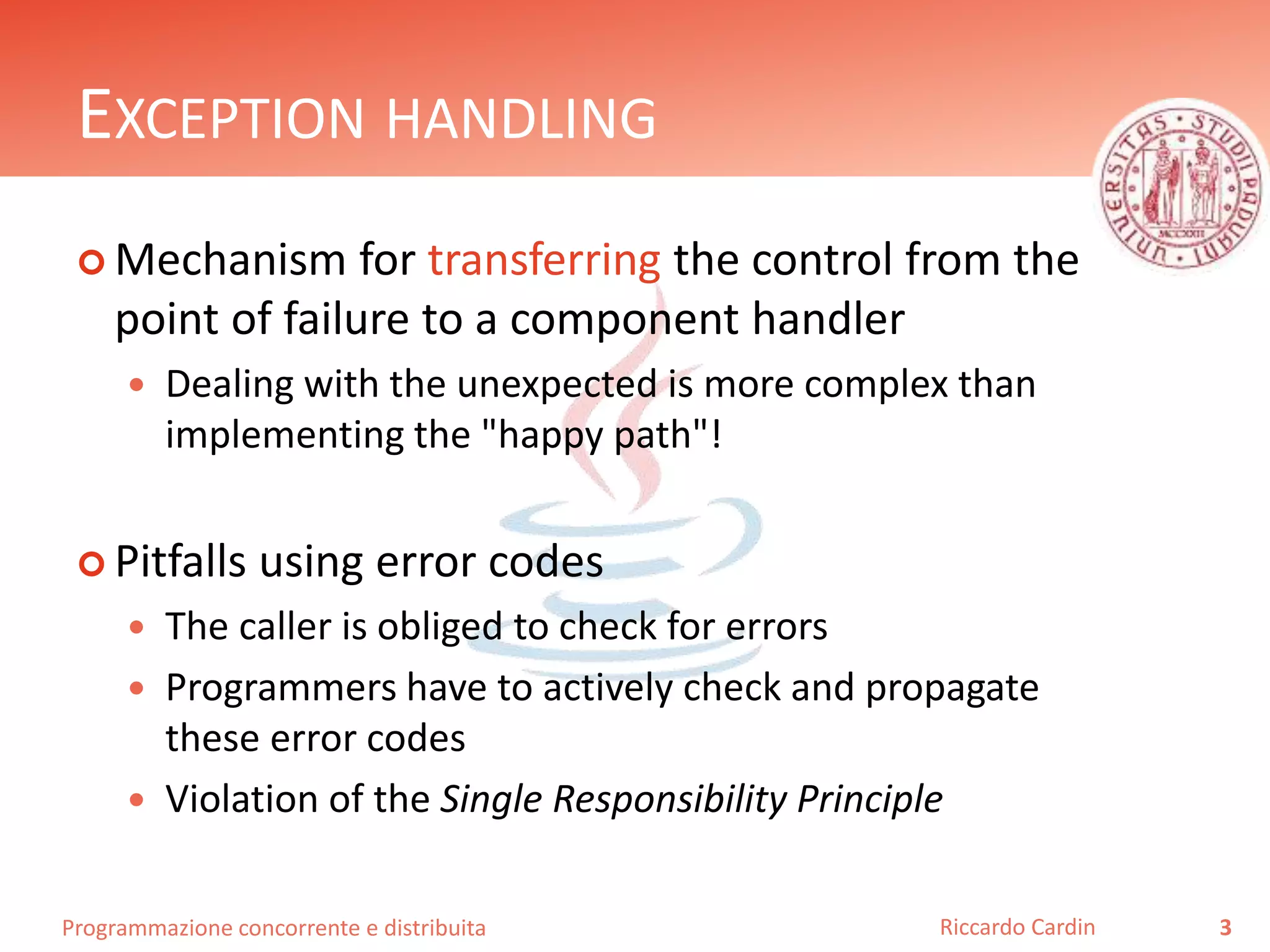
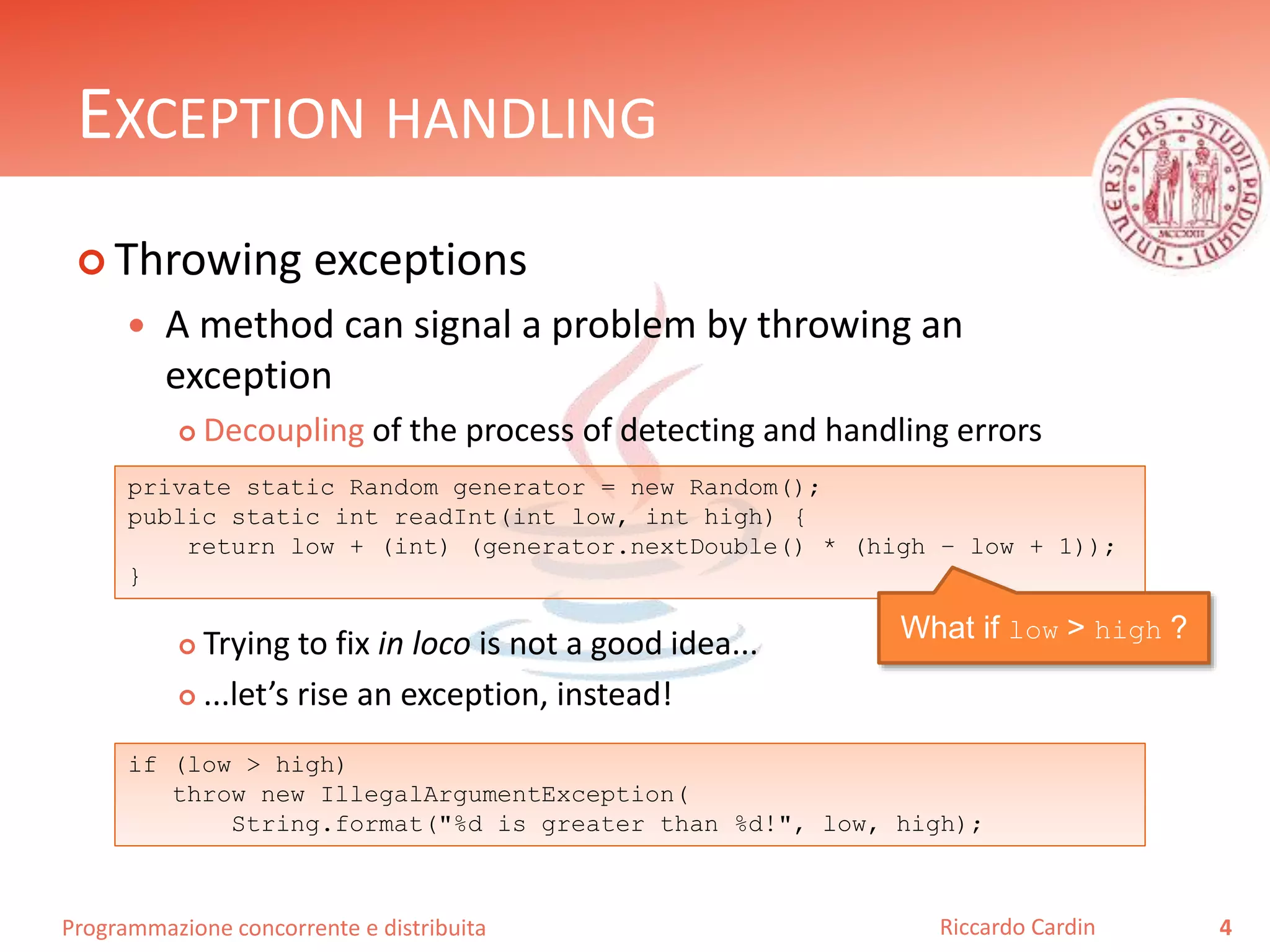
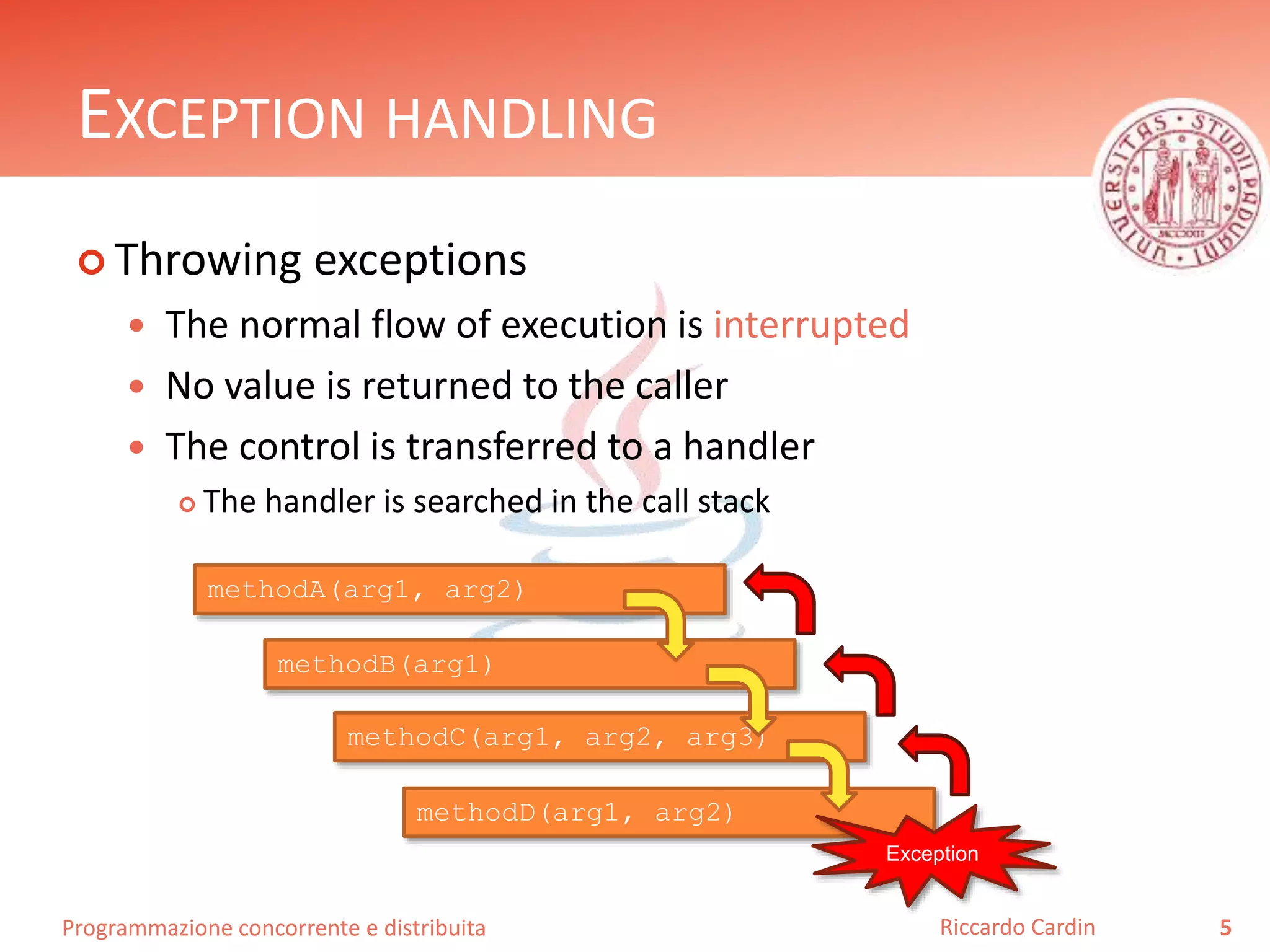
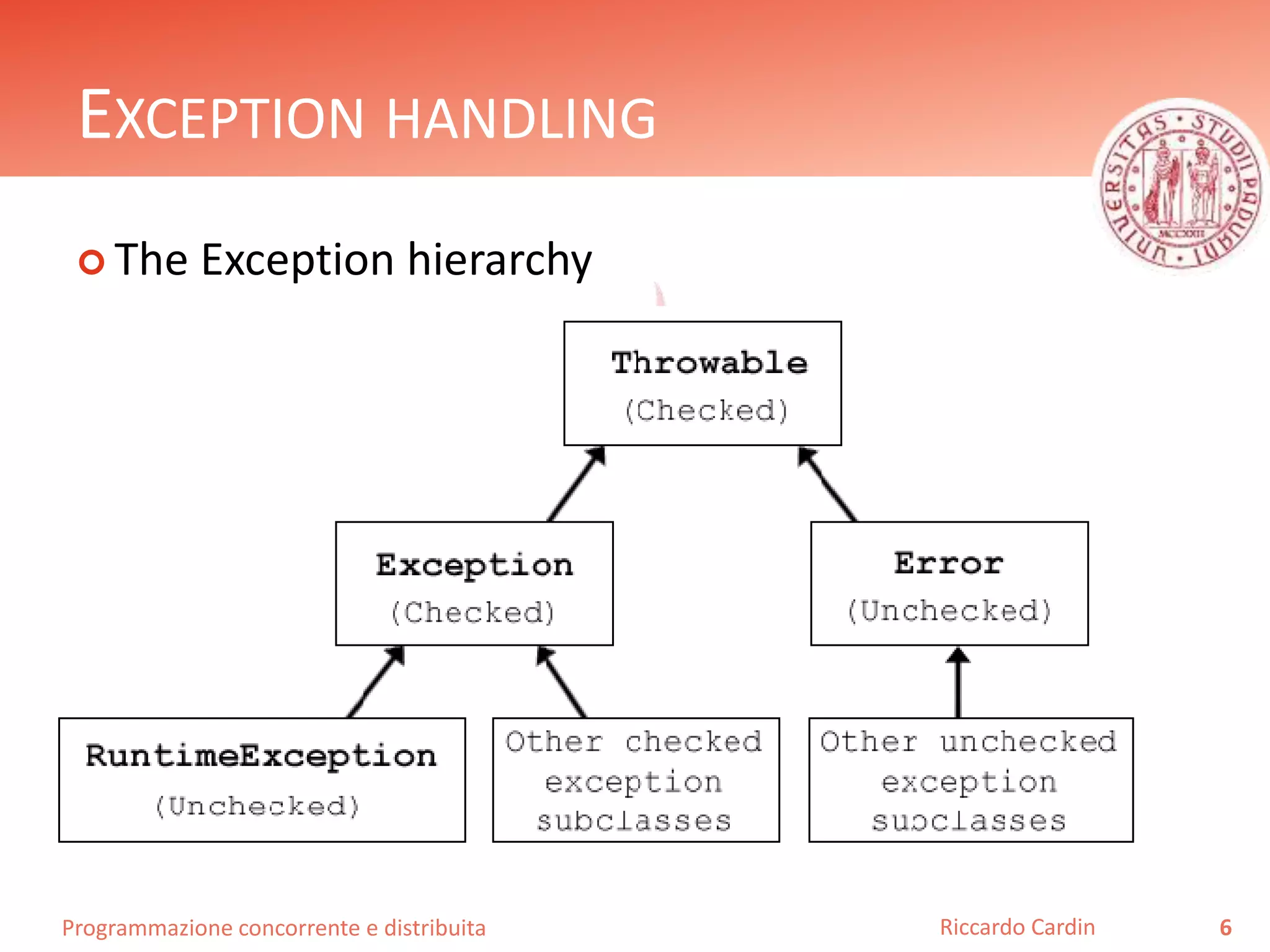
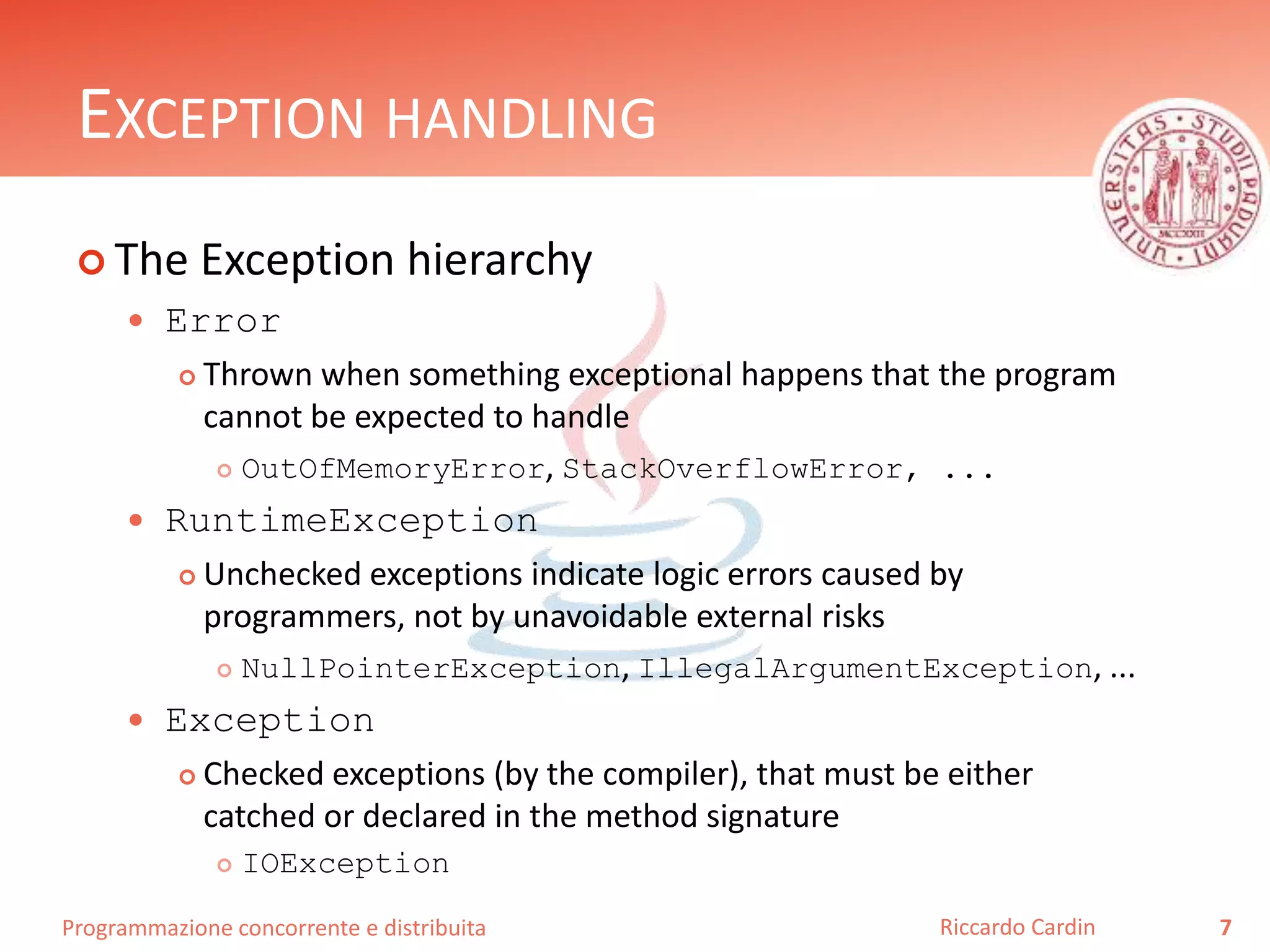
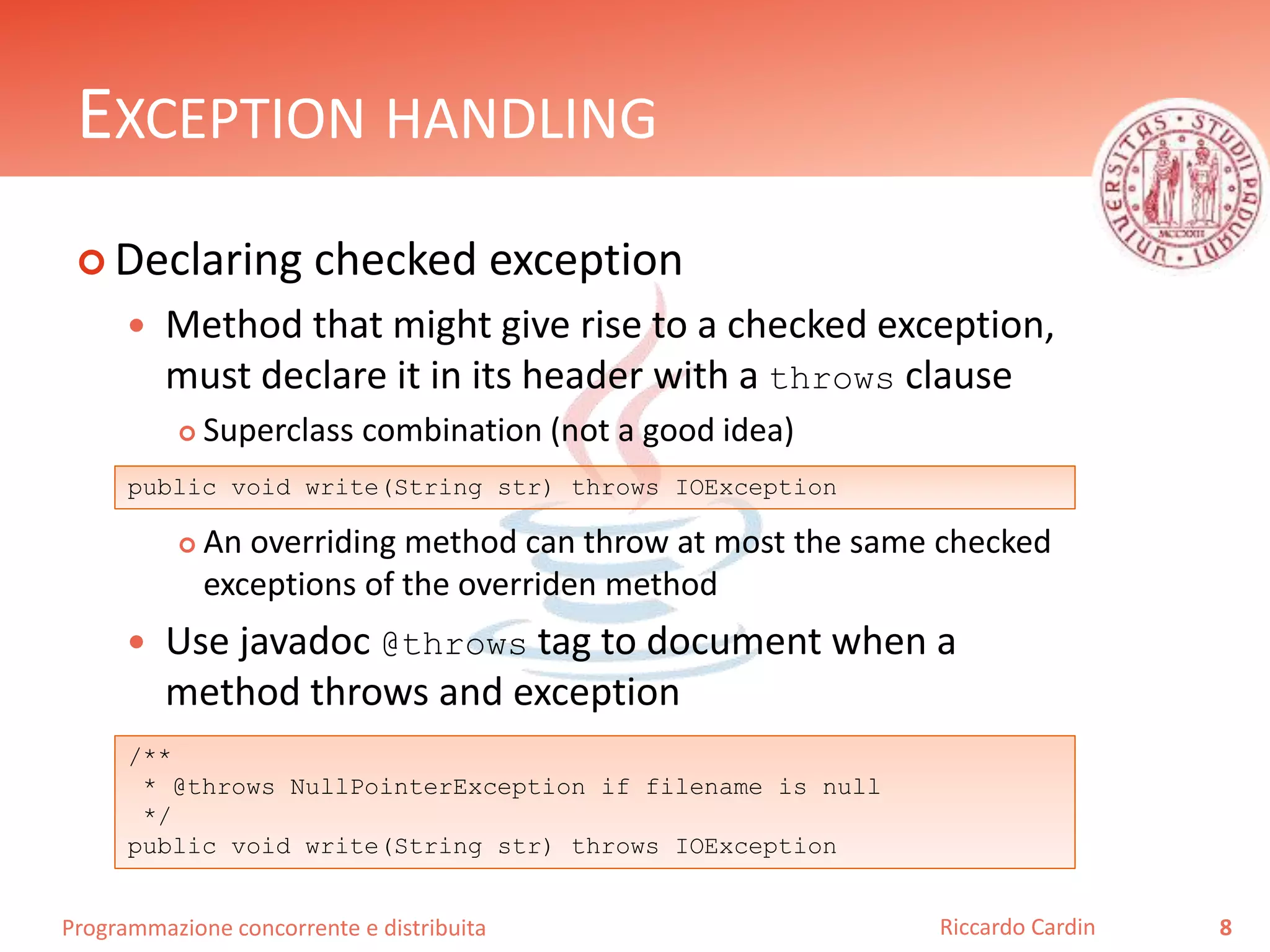
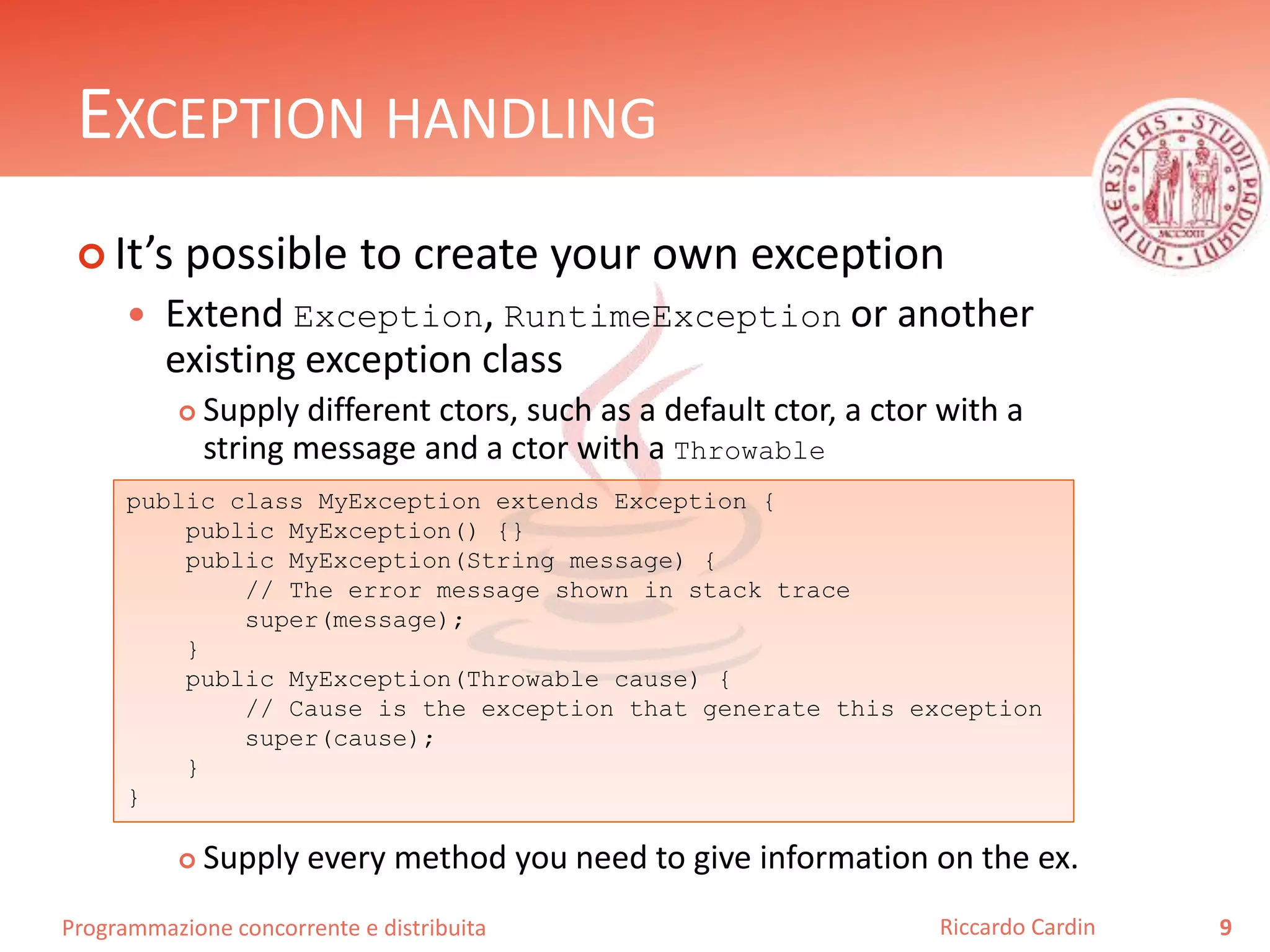
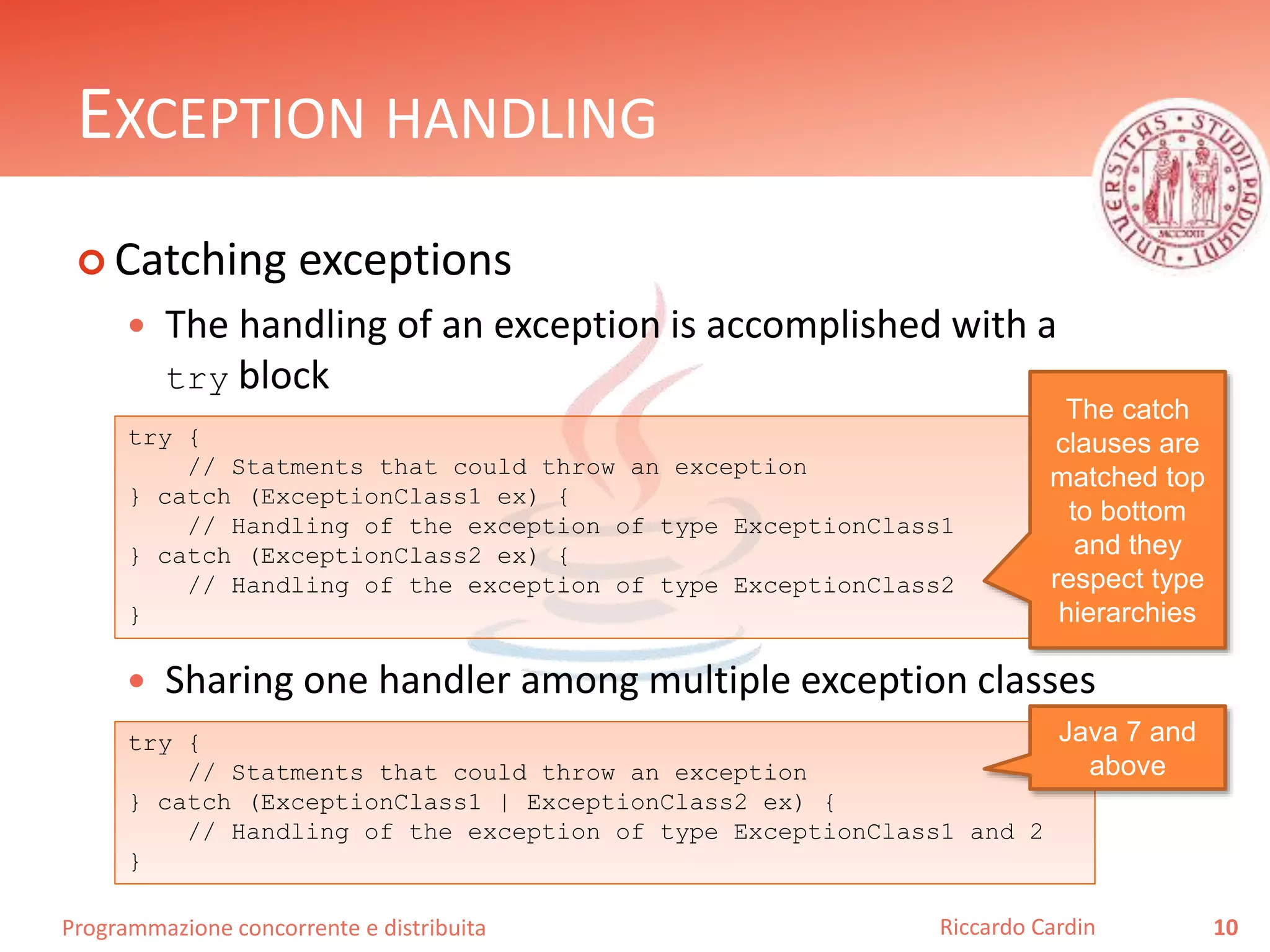
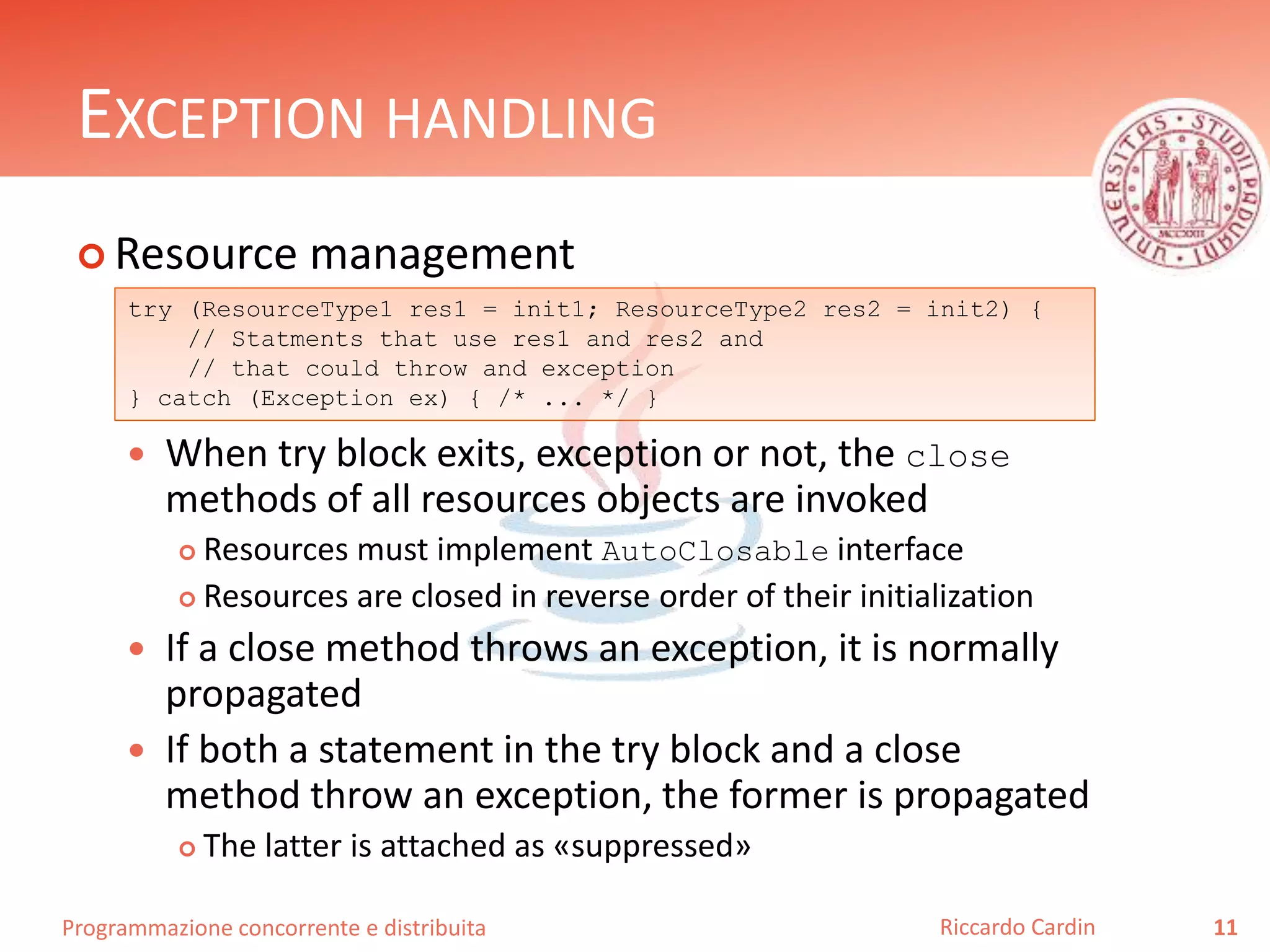
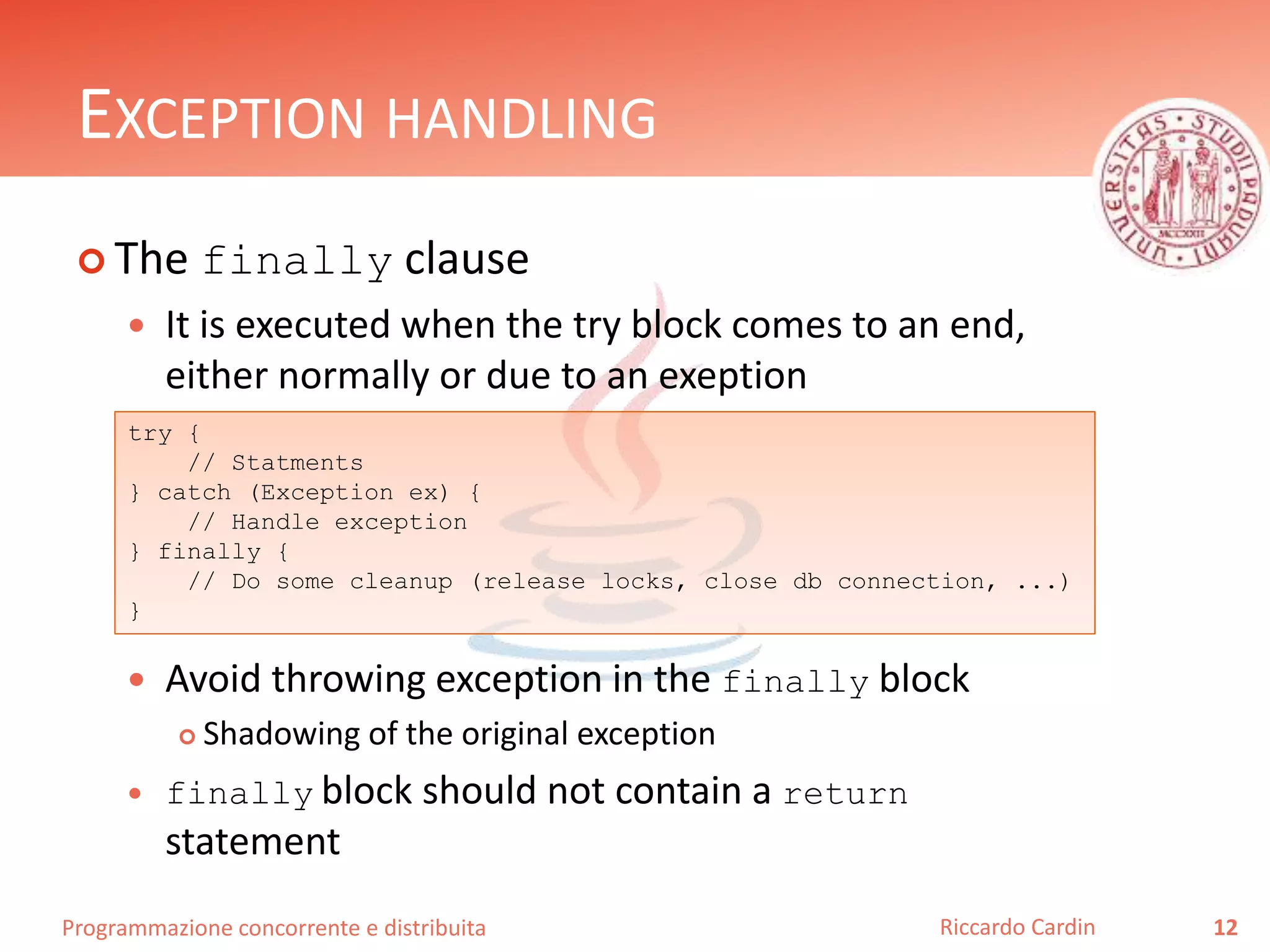
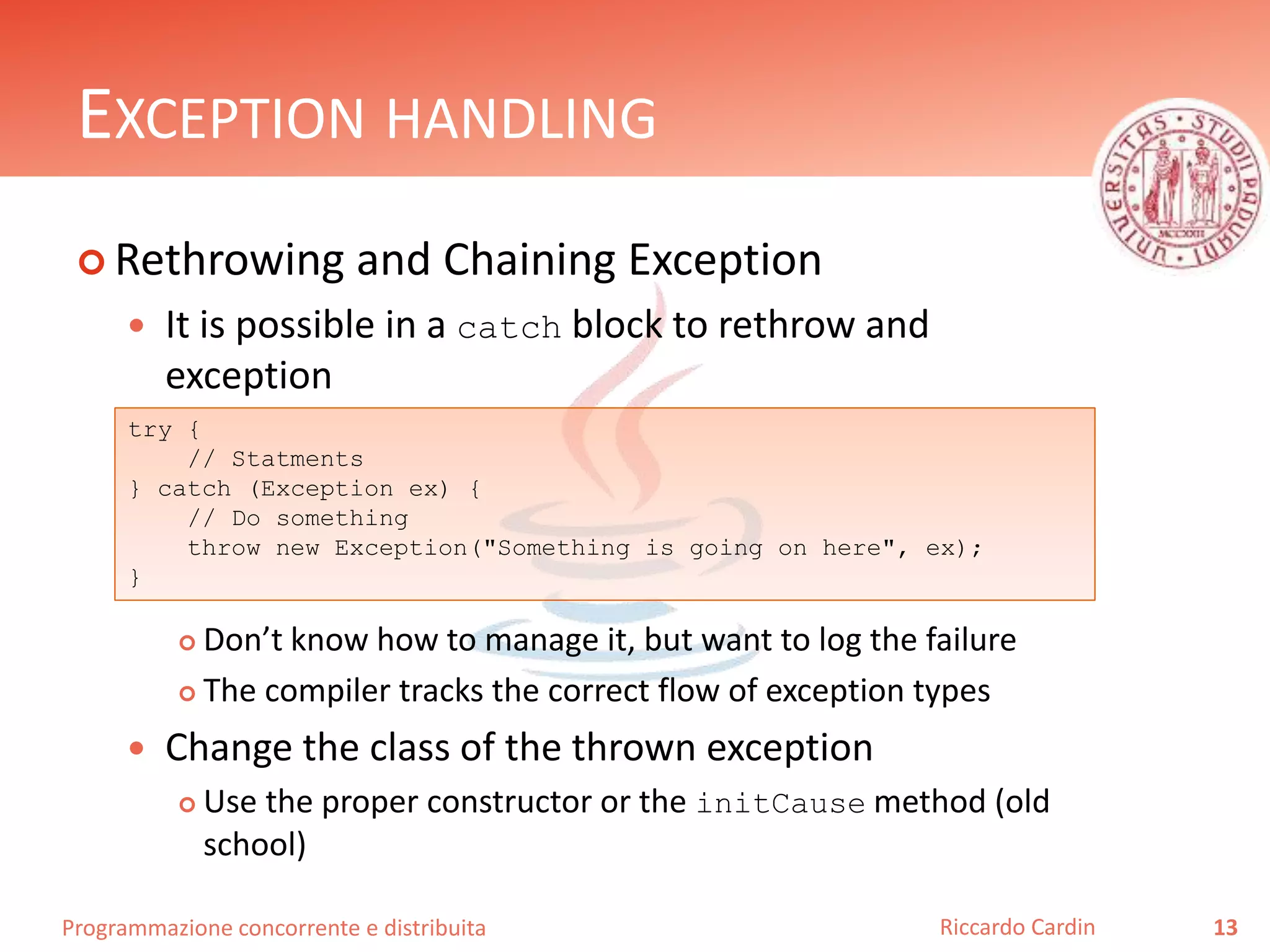
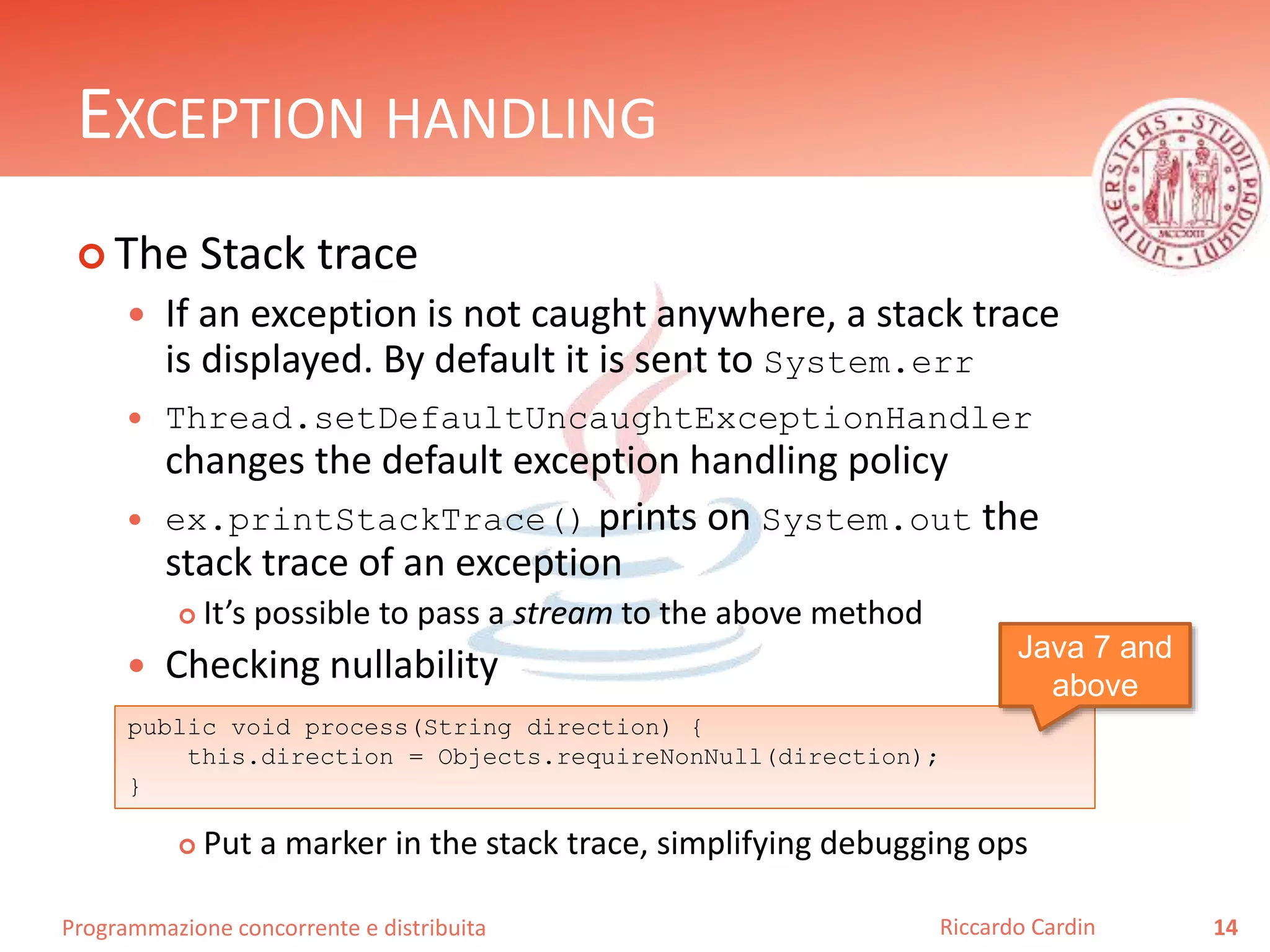
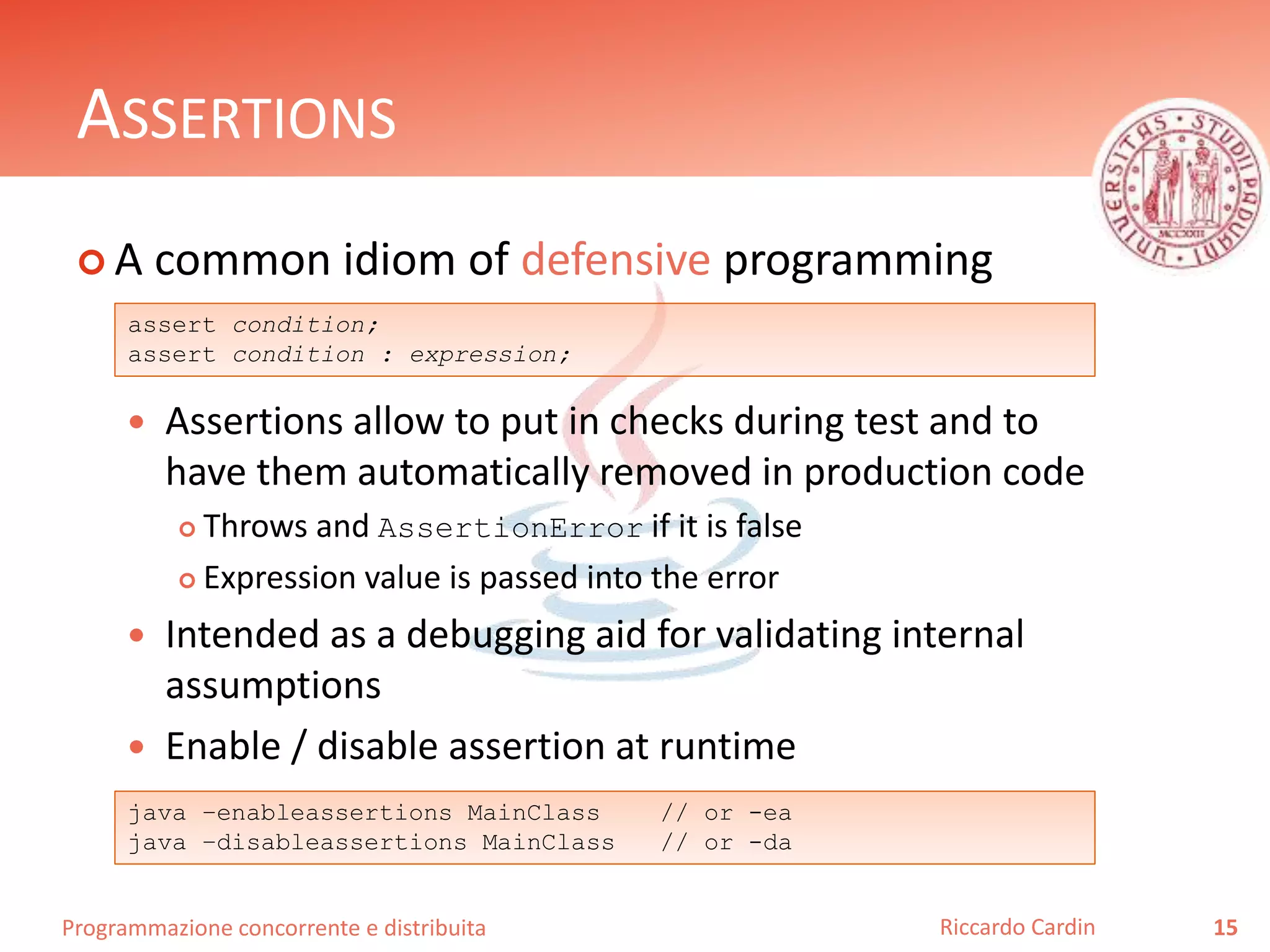
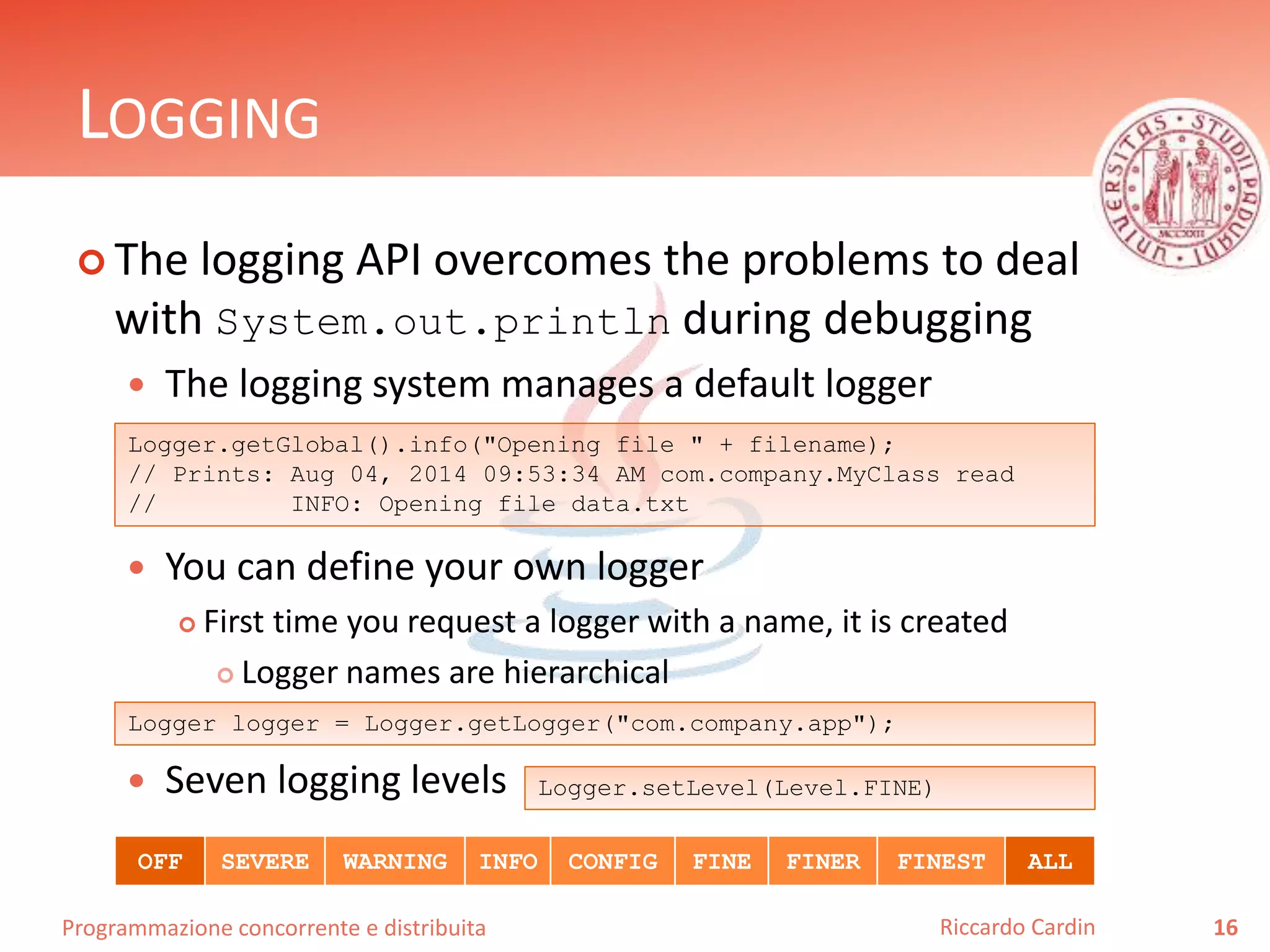
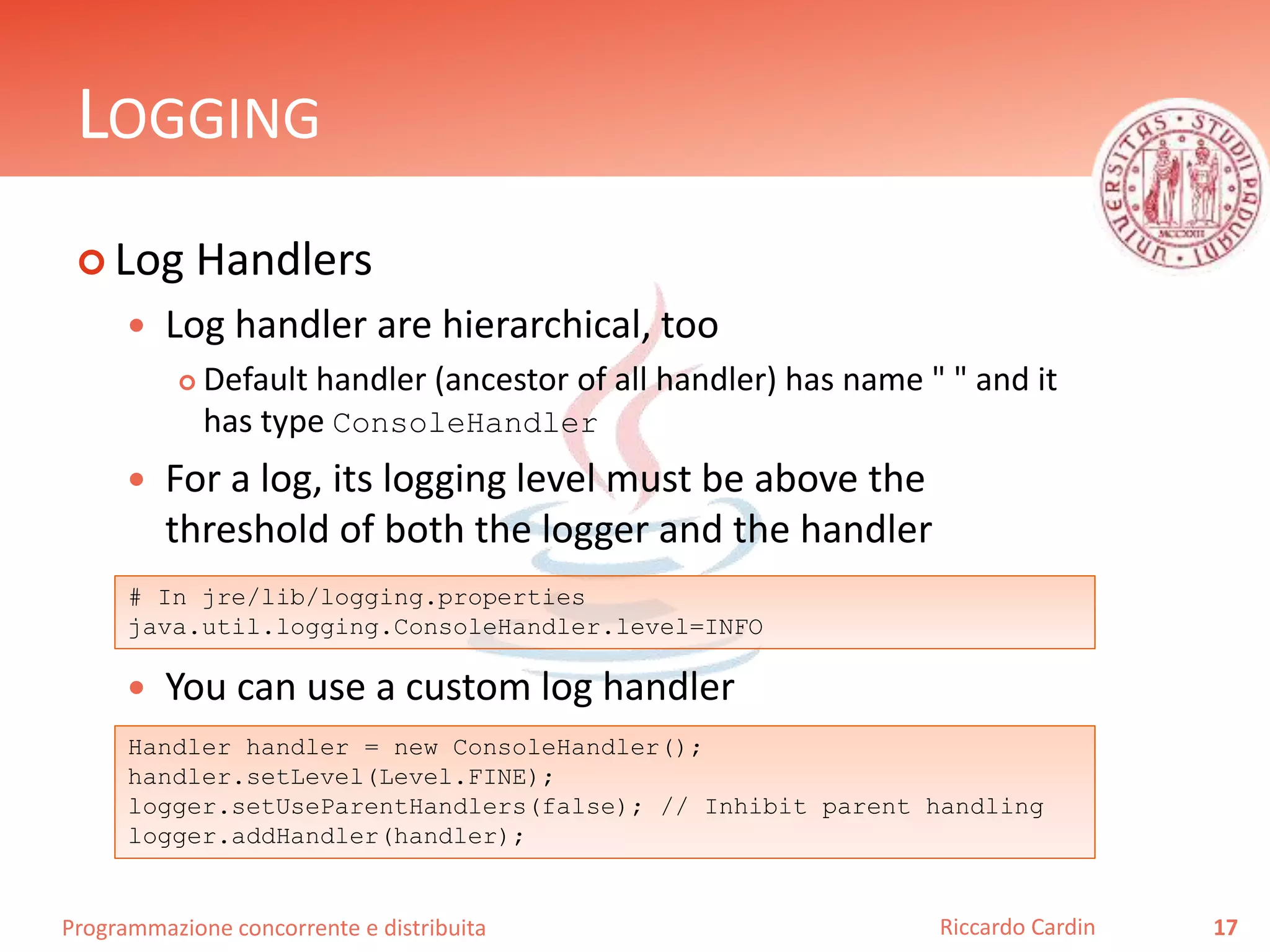
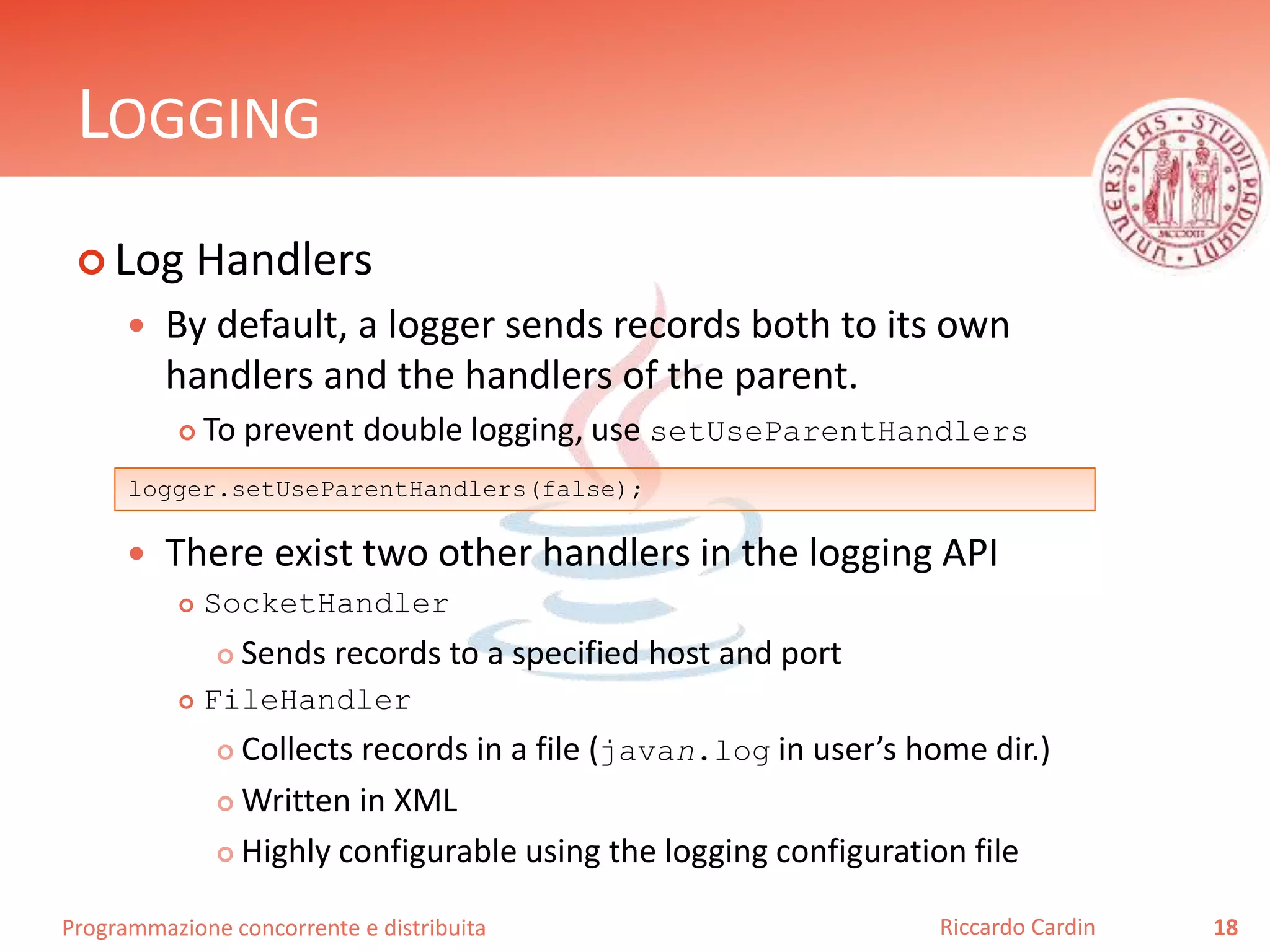
![Programmazione concorrente e distribuita
CHECKED OR UNCHECKED?
Checked or un unchecked, which is better?
There is a active and never ending debate on this
question in Java, but no «right absolute answer».
"Use the checked ones, Luke!"
A checked exception is part of a method API
Cay Horstmann
Joshua Bloch
19Riccardo Cardin
Unchecked exceptions indicate logic errors caused by programmers, not
by unavoidable external risks [..] Checked exceptions are used in a
situation where failure should be anticipated.
Item 58: Use checked exceptions for recoverable conditions and runtime
exceptions for programming errors](https://image.slidesharecdn.com/java-exceptionhandlingassertionsandlogging-copia-151102070519-lva1-app6892/75/Java-Exception-Handling-Assertions-and-Logging-19-2048.jpg)
